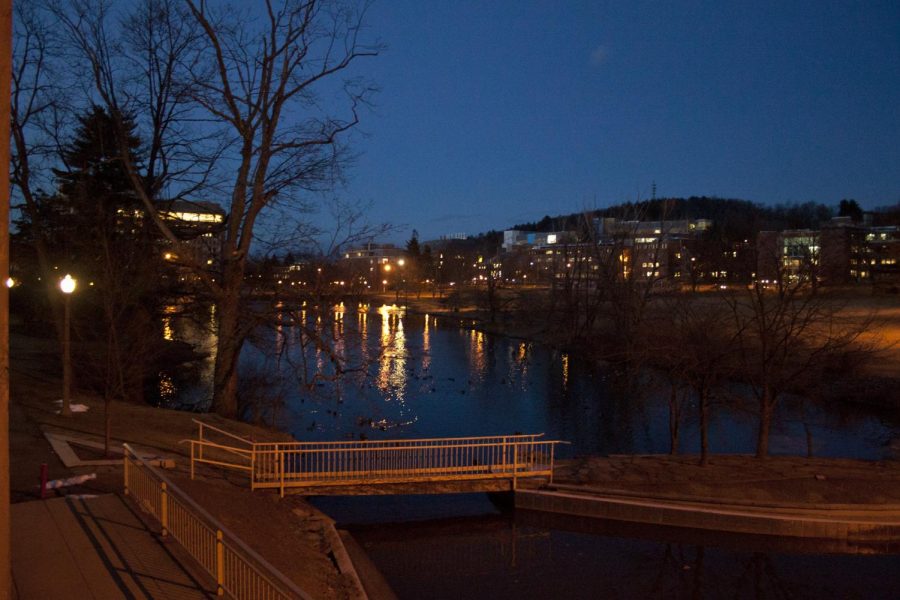Indian Prime Minister Narendra Modi is a big fan of quick decisions. In the past, for example, he removed 86 percent of Indian banknotes overnight and hastily pushed through a complicated Goods and Services Tax.
But in August, he went to a whole new level: in a matter of days, his government curbed tourist activity in Kashmir, cut all phone and internet services, arrested major political leaders and has been reported to .
His government then proceeded to remove Article 370 of the Indian constitution, which gave the state of Jammu and Kashmir (of which Kashmir is a part) a semi-autonomous status. Now, the state will be divided into two union territories ruled directly by New Delhi, India’s capital.
Kashmir and India have had a long, complicated history. The mountainous, northern region is predominately Muslim while the rest of the country is overwhelmingly Hindu — it also has a culture and traditions that differ greatly from other Indian ones. As a result, when Jammu and Kashmir were fully integrated into the Republic of India in 1954, the local assembly made it clear that in order to preserve the distinct identity of the region, that the state would need to enjoy certain freedoms — its own constitution, flag and right to make laws restricting outsiders from buying land. This led to the inclusion of Article 370 in the Indian constitution.
However, the actual scope and power of the article has been undermined and ignored because the Indian federal government has constantly interfered in local affairs. When India allegedly interfered in the 1987 elections, the action stirred massive anti-India sentiment that culminated in a bloody, decades-long militancy and separatist movement.
The response by the Indian government to the insurgency has been swift and harsh. It sent a 600,000 strong army, which has been accused by Human Rights Watch and other organizations of committing human rights abuses including murder, rape and enforced disappearance. Overall, the human cost of the conflict is staggering — more than 47,000 people have perished in the violence.
It has long been an objective of Modi and his Hindu nationalist Bharatiya Janata Party (BJP) to integrate Muslim Kashmir into the mainstream Hindu society. By removing Article 370, many fear that laws preventing non-residents from owning property will be repealed, leading to massive demographic change in the region. Supporters of the decision have already declared their intention of settling in Kashmir, sending waves of panic among Kashmiris that the local population will be reduced to a minority.
The government has silenced Kashmiris’ attempts to share their suffering and apprehensions by ending internet and mobile services as well as hindering journalists, allowing Modi to continue with his plan without significant international or domestic scrutiny.
While the premiership and Parliament have fallen to the BJP, one branch remains relatively independent: the Supreme Court. Long a bastion of human rights, the court has legalized homosexuality and expanded despite opposition from politicians.
Instead of taking swift action, however, it has continuously delayed the case hearing on Article 370. The response by the court should not have taken so long because the removal of the article is clearly unconstitutional. The proper way to remove the article requires approval by the state assembly, but the assembly was temporarily dissolved while the government acted.
The court’s recent behavior is dangerous because it seems that it is submitting to Modi’s will. In a normal, healthy democracy, courts form a bulwark against populist pressures in the executive and the legislature, making decisions that may seem unpopular but that are essential. If the courts do not act, then both Kashmir and the entire Indian democracy are at risk of a more authoritarian precedent.
That is why it is imperative that the Supreme Court takes no more delay. It must reinstate Article 370 and ensure that the semi-autonomous status is better enforced. Particularly, it must make sure that local elections are free and fair. The court must also strike down Modi’s authoritarian suppression of the internet and journalists as violating freedom of speech and of the press, which are fundamental rights in the Indian constitution. Moreover, laws that give army officials immunity from criminal investigations must be removed, and probes should be set up to deal with accusations.
In doing so, the unique demography of the region would be preserved. The advent of a stronger Article 370 prevents Modi and the central government from submitting Kashmir to its will. Rather, Kashmiris would enjoy political and economic agency to improve their current condition. They would also gain something they have never experienced before: trust. It is this trust by which Kashmiris will start to feel genuinely included in the secular, pluralistic democracy that India claims to be.
A few court decisions will not completely solve the Kashmir crisis — the issue is far too complex for that. However, it will the first decisive steps the government has ever taken. That in itself is meaningful enough.
Arnav Mehra is a Collegian contributor and can be reached at [email protected].



















